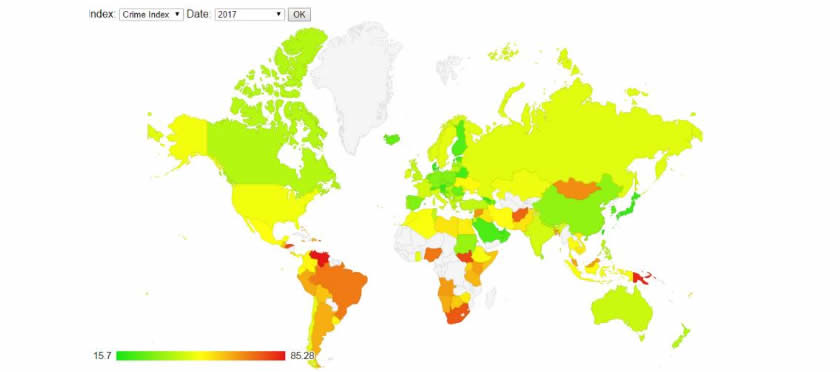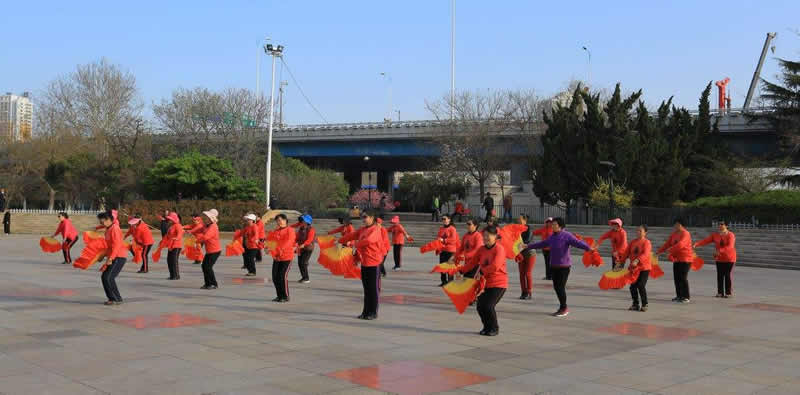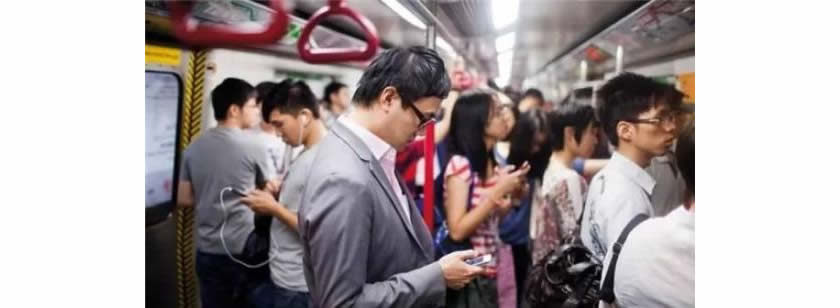Current Location:Home > TEACH ABROAD IN CHINA GUIDE > WORK & LIVING TIPS > Culture Shock & Cultural Differences

Current Location:Home > TEACH ABROAD IN CHINA GUIDE > WORK & LIVING TIPS > Culture Shock & Cultural Differences
source:易口教育 time:2018-07-27 11:48:25 read:10660
For the past 20 years China has opened up to global markets. This has led to a closer integration of global ideas on the Chinese mainland. Nevertheless, 20 years isn’t exactly a long time and it’s important to remember China was an extremely protectionist and isolated society for many years. As a result there is still something, which is revered culturally which may appear confusing to the untrained Western eye. Attitudes and behavior are different at different demographic levels in China. The elderly, the middle aged and the young generation.
So let’s look at something, which we may consider culturally different. Some positive and maybe some more eccentric practices.
Safety
This is by far the best reason for living in China. It’s astonishingly safe! Instances of any serious crime or altercations are near nonexistent. This is genuinely the case and not state propaganda. The east coast has extremely low violent crime rates. Indeed, in terms of physical fighting, you're far more likely to see two Westerners engaged in a brawl rather than locals. That’s not to say crime doesn’t exist. There is plenty of petty theft and fraud but it’s all non-confrontational crime. It’s safe to walk the streets at any time unescorted in all cities on China’s East Coast. Why is it so safe? Well, it’s very simple, it’s still heavily policed and it has been for many years. Citizens don’t enjoy (or abuse) the non-constraints of movement and expression we have in the west. In general, Chinese people are very pacified and shy away from any potential aggression or conflict. All this is not too say it isn’t dangerous... crossing the road will probably be the most dangerous thing you’ll do here... driving can be notoriously bad. Don’t try to anticipate or second-guess a driver’s, cyclist’s or pedestrian’s intentions. The roads can be fairly lawless and accidents are commonplace although not usually serious as travelling speeds are slow due to traffic congestion.

The Language Barrier
One of the hardest realities of a life in China is coming up against the language barrier.
Remember the reason why you're here is to teach English, largely to the young generation of Chinese allowing greater global communication and a wider spectrum of opportunity for their future. The problem is the older generation has a near-zero English ability. Don’t expect taxi drivers or shop clerks to be able to communicate beyond “haolo”. Your Chinese language ability is really yours alone to navigate. Some teachers take it very seriously and some teachers are very nonchalant about it and amble through with little or no Chinese language ability for many years. Whichever route you choose we are here to support you. Your welfare officer will assist with any language or communication difficulties. So remember, the first cultural shock is likely to be one of communication.

Food & Eating
The second cultural shock will be food. Now there are many fantastic Chinese dishes and you’ll discover your personal favorite... however, some teachers take a while to adjust. No only that but your stomach may take a while to adjust too! Don’t be surprised to be visiting the toilet more frequently when you first arrive in China (we’ll talk more about toilets later). The Chinese food we eat in the west has been modified to our tastes. It’s actually Cantonese food we eat back home, full of sweeteners and MSG. The texture and odor of some traditional foods on the Chinese East Coast can take a while acclimatizing to. But let’s not worry too much... the great thing about modern cities is there’s now plenty of western restaurants and supermarkets which allow you to maintain your same dietary plan as back home. The only problem, to maintain a Western diet in China is expensive as food is subject to an import tax.
Eating and table manners can also be an eye-opener when you arrive. The emphasis is on communal eating and sharing which is a wonderful thing. Don’t be afraid to try new things if offered but equally don’t be afraid to politely decline if you really think you can’t eat something. The Chinese are very enthusiastic about eating and they are happy to show their appreciation of food vocally by slurping and chomping. If you come from a reserved Western background, you may find this off-putting at first but it’s easily adapted to and ignored. Ordering food can also prove difficult in a Chinese restaurant, and not just because of the language barrier. You can easily point at pictures on the menu and give a thumbs up... they’ll understand. The problem is getting the waiter’s attention. In the west we tend to wait for eye contact and a subtle nod... however in China you’re expected to be very vocal and gesture with your hand in a strong beckoning motion. Don’t consider it rude. If you don’t do it, you’re likely to stay hungry!!
Chopsticks.
So Chopsticks are the norm. In your average Chinese restaurant you’re unlikely to find a knife or fork, so getting use to using chopsticks is a must. The better restaurants will have knives and forks but the truth is many Chinese people never use them and can’t use them... the same as us with chopsticks in the west. It doesn’t take long to master the use… Usually 2 or 3 weeks.
Warm & Hot Water
Another dietary custom you will become instantly aware of is China’s obsession with hot and warm water. Drinking cold water is viewed as bad for your health and digestion. In fact, cold liquids in general are difficult to find in places. It’s not uncommon to receive a warm beer or bottle of Coke in a restaurant. This can be difficult to adjust to and you’ll soon get use to your Chinese friend insisting that all ills are cured by increasing your consumption of hot water.

Old People
Elderly Chinese can be very interested in foreigners. For some of them you could well be the first foreigner they’ve ever met. Expect them to be curious. Indeed, the further you travel from the city areas the more curious people will become.... And expect them to take photos, with or without your permission! As well as being inquisitive and friendly, old people love to gather together and partake in communal dance. This can be an intriguing and beautiful sight on an evening. Chinese superstition can also play a major part in your relationship with China’s older generation. Lucky numbers and unlucky omens are prevalent in the mind of the elderly. Try to humor them and certainly don’t disrespect them.

Phones and Awareness
No place on earth is people more absorbed with their phones than in China. Young girls will be obsessed with selfies and taking photos of any occurrence not matter how insignificant. People tend to literally narrate their lives in real time via their handsets in China. You’ll witness thousands of young men attentively and enthusiastically playing the latest computer games every morning on the subway. Indeed, it can be difficult to distract your Chinese friend from using their phone. As a result there’s often minor accidents and awkward moments of pedestrian etiquette when travelling on escalators, elevators and subways.

Shouting and Noise
China can be a noisy place. Construction is still booming in parts and it’s not uncommon for building projects to work through the night if they have government permission. Asides from the construction and traffic, Chinese people can be loud. It’s more a vibrancy and enthusiasm in reality. Loud and animated conversations are considered normal here and people aren’t afraid to publicly air conversations with deafening tones. It’s seen as good form by the Chinese and a way of engagement. If you are finding the office environment a little noisy and over-bearing .. you can always take yourself outside for five minutes.
Central Heating
On the east coast of China and from central to southern regions there is no central heating during the winter months. This isn’t overtly a problem as winters are only chilly and never freezing. People tend to wear heavy layers of clothing inside and out. The ethos in China is that you retain heat rather than generate heat. Basically drink hot water and stick two sweaters on! The winter months are bearable and even in February temperatures start to get above 20 degrees Celsius. You’ll often see your Chinese friends wearing thick padded fleece pyjamas in the winter...And while we’re speaking about pyjamas, it’s not uncommon to see Chinese people casually wearing their pyjamas in the supermarket. It’s perfectly acceptable!!
Toilets
So here’s a big difference... TOILETS!! In western countries sit-down toilets are considered the norm. And don’t fear, we promise your apartment will have a standard sit-down flush toilet. But 90% of the public or office toilets you’ll come across will be squat toilets. They take somme getting use to. Indeed, many Westerners consider it an art form in itself. Naturally, this method of answering nature’s most primal call is considered very healthy and good for your posture. The general hygiene of toilets can be questionable in public spaces but school and office toilets will be frequently cleaned.
For the past 20 years China has opened up to overseas markets. This has led to a closer integration of global ideas on the Chinese mainland. Nevertheless, 20 years isn't exactly a long time and it's important to remember China was an extremely protectionist and isolated society for many years. As a result there are still somethings which are revered culturally which may appear confusing to the untrained Western eye. Attitudes and behaviour are different at different demographic levels in China. The elderly, the middle aged and the young generation. Remember it wasn't all too long ago when hardship in China was gone. The ossal modern cities you will witness are truly some of the greatest achievements of mankind.
So let's look at somethings which we may consider culturally different. Some positive and maybe some more eccentric practises.
©Echo Education | Teach English ABroad | Legal declaration| Privacy policy| Foreign Affairs Service| English For Kids| English Teacher